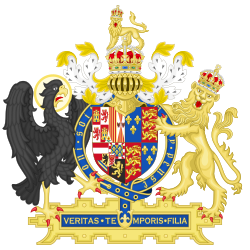| Act of Parliament | |
 | |
| Long title | An Act for the amending of Highways. |
|---|---|
| Citation | 2 & 3 Ph. & M. c. 8 |
| Territorial extent | England and Wales |
| Dates | |
| Royal assent | 9 December 1555 |
| Commencement | 21 October 1555 [a] |
| Repealed | 21 September 1767 |
| Other legislation | |
| Amended by | Highways Act 1562 |
| Repealed by | Highways (No. 2) Act 1766 |
Status: Repealed | |
| Text of statute as originally enacted | |
The Highways Act 1555 (2 & 3 Ph. & M. c. 8), sometimes the First Statute of Highways, was an act of the Parliament of England, which placed the burden of upkeep of the highways on individual parishes and that was passed in 1555. The act was amended, and extended, by the Highways Act 1562 (5 Eliz. 1. c. 13).